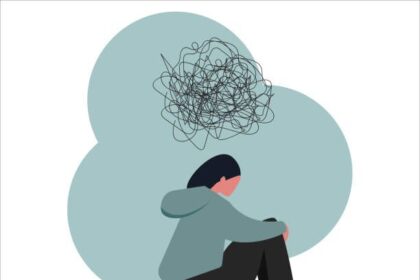The first casualty of modern-day living is sleep; it comes right at the top of the list of things to sacrifice. Work, preparations for exams, binge-watching a series, and scrolling through a phone for hours take priority over sleep. To many, sleep is just an optional activity. But sleep isn’t something optional; it belongs in the same basic biological needs’ category as food, water, and air.
Physical and mental health is dependent on sleep. Of course, sleep has a strong and close association with the functions of the immune system, emotional stability, memory consolidation, and even weight. Let’s take a better assessment of sleep’s benefits, the consequences of poor sleep, and ways to improve our sleep quality.
What Takes Place During Sleep?
Sleeping is not at all a passive moment! Brain function is not put to rest but goes through active stages/phases such as:
- Non-REM sleep (Stages 1–3): With Stage 1 as light sleep and Stage 3 as deep sleep, deep sleep is considered essential to recover and strengthen our immune system. A possible disruption in deep sleep can result in major emotional imbalances such as mood swings and a higher risk of getting sick.
- REM Sleep: This is a phase of sleep associated with dreaming. This stage helps bolster certain cognitive functions like memory, learning, and emotional regulation.
Each night, a person can have around four to six cycles that last for 90 minutes each. Any interruption in these cycles lessens the quality of sleep because, while it may appear the remaining time in bed is adequate, it does not compensate for anything that is disturbed.
The Benefits of Sleep
- Memory and Cognitive Function
The brain works overnight to consolidate whatever has been learnt over the last 24 hours. This becomes an important axis for memory formation and the learning of new skills. The general belief is that it is better to sleep well the night before an exam rather than cram all night.
- Emotion Control
Sleep is an important regulator of emotion. Sleep-deprived individuals have been shown to react with more irritability, be prone to mood swings, and even show some signs of anxiety and depression.
- Defence Mechanisms of the Immune System
During sleep, our body produces cytokines that protect the body against inflammation and infections. Constant deprivation of sleep may not allow the body to produce enough cytokines, making it more vulnerable to disease.
- Heart Health
When it comes to heart problems, sleep is directly linked to hypertension, irregular heartbeat, and increased chances of stroke. Sleep also regulates different hormones related to our cardiovascular system.
- Weight Management
Sleep affects the hormones that control our appetite, such as ghrelin and leptin. Sleep deprivation raises ghrelin (the hunger hormone) and lowers leptin (the one that makes you feel full).
The Consequences of Poor Sleep
Short-term consequences of insufficient quality sleep are as follows:
- Problems with memory/concentration
- Slower reaction time
- Greater chance of getting into an accident
- Mood changes/irritability
In the chapter on long-term effects, chronic deprivation of sleep has been linked with:
- Obesity
- Diabetes
- Diseases of the heart and blood vessels
- Depression and anxiety
- Shorter life in terms of years lived
Sleep debt cannot be surmounted easily. Paying off sleep debt on weekends cannot recover all the effects that sleep deprivation may cause.
How Much Sleep Do You Need?
The National Sleep Foundation recommends the following:
- Children (6–13 years): 9–11 hours
- Teenagers (14–17 years): 8–10 hours
- Adults (18–64 years): 7–9 hours
- Older adults (65+): 7–8 hours
Different individuals may need different amounts of sleep, but consistently getting less than 6 hours per night is considered harmful to most people and can limit your total lifespan.
Ways to Improve Sleep
Most sleep improvement involves changing your lifestyle and environment. Research on sleep improvement cites the following as good practices:
- Create a Routine
Have a proper bedtime and wake-up time, even on weekends if possible. This keeps the body on a more synchronised sleep/wake schedule, which regulates your body’s internal clock.
- Avoid Screens Before Sleep
Blue light from phones, tablets, and TVs is known to interfere with melatonin production (the hormone that tells your body when to sleep). Hence, no devices should be used an hour before going to bed.
- Create a Sleep-Friendly Environment
Keep your bedroom dark, cool, and quiet. Plug in your headphones and listen to white noise if necessary.
- Watch What You Eat
Heavy meals, caffeine, and alcohol consumption can set off actions that disrupt your sleeping cycle and schedule. Therefore, monitor what you eat and when to avoid unrest.
- Exercise Regularly
Being active during the day will help you fall asleep faster and have deeper sleep during the night—unless you exercise just before going to bed.
Conclusion
Sleep is not a luxury; it is a necessity. It is the basis of our good physical and mental health. Although sometimes it appears that busyness and productivity are more valued than sleep, research supports that quality sleep can enhance everything.
At this point, it is evident that quality sleep makes your life better, and perhaps getting a full night’s sleep might be the best decision you can make for yourself—every single day.
















